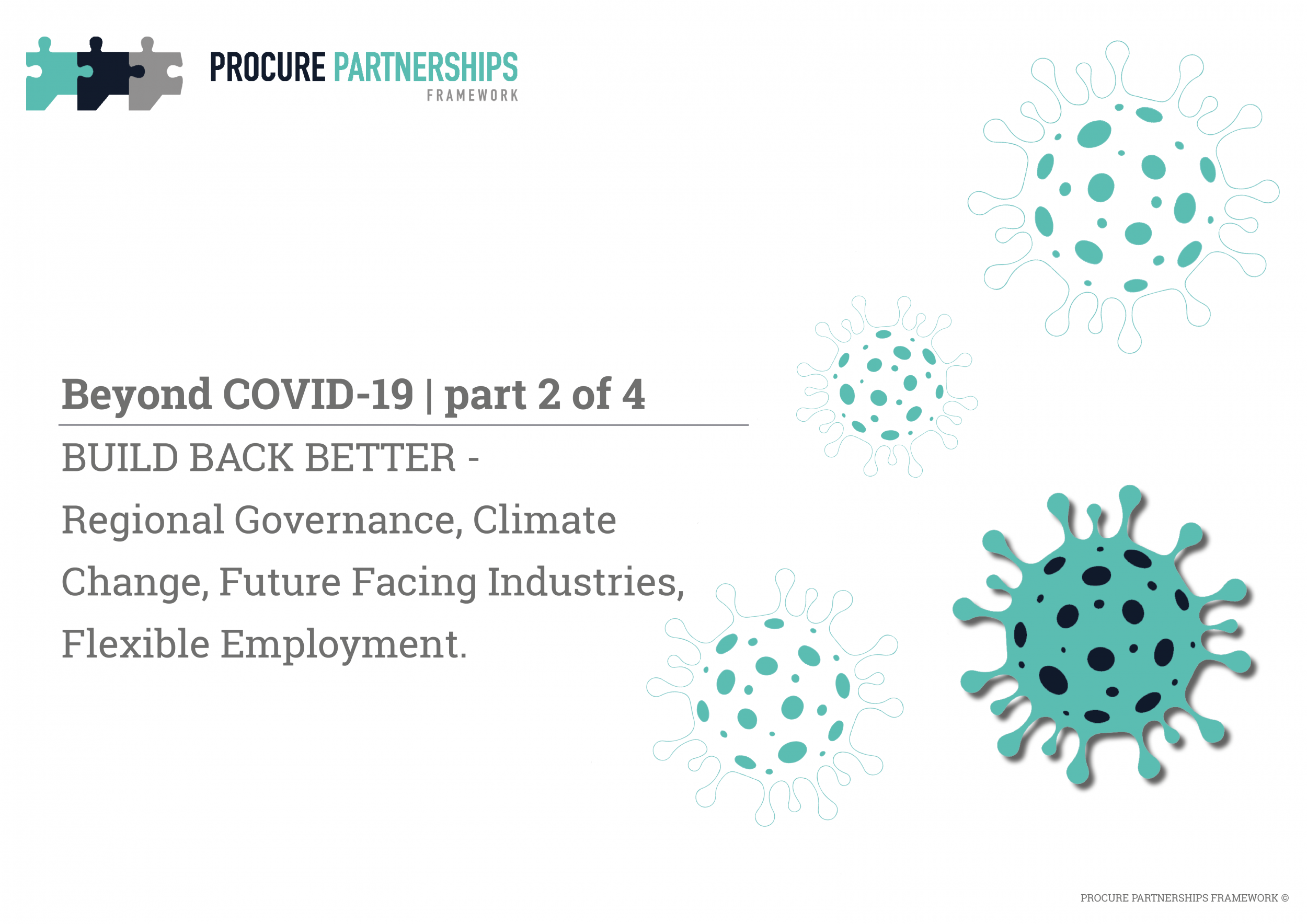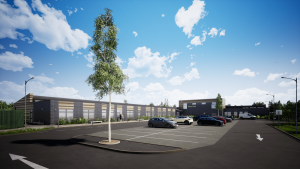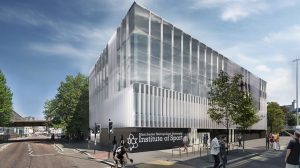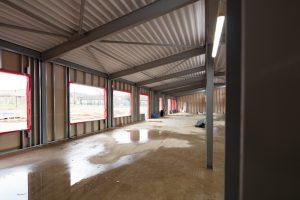The COVID-19 pandemic has shaken every element of our lives and caused untold amounts of suffering and heartache. As lockdown measures begin to ease and we start to slowly re-establish a sense of normality, it would not be unreasonable to assume that most people are desperate to return to their pre COVID-19 realities. However, in a recent survey, only 9% of people wanted to return to life just as it was… perhaps this pause in normality has allowed us to recognise our desire for change by highlighting some of the fundamental weaknesses in our economy and our society?
To reflect this growing demand for reform, many councils and LEPs have adopted the slogan ‘Build Back Better’, aiming to use this time of intense change to cultivate positive growth and to address some of the many deep-rooted issues in society.
In this blog, we will explore what ‘Build Back Better’ means and the positive impact this movement could have on our towns and cities.
As the world recovers, we have the chance to make it better than ever before.
COVID-19 has exposed some of the fundamental inequalities in our society and it seems our most vulnerable people have been hardest hit. Keyworkers in the lowest paid jobs have kept the country running, healthcare professionals have shouldered a huge amount of risk and worry to care for the ill and the elderly, and people living in poverty and poor housing have suffered through lockdown in challenging conditions. COVID-19 infection rates have been higher in regions which have socio-economic inequalities in health, skills and employment levels.
The UK now faces major economic, social and environmental challenges. The risk of high unemployment will only increase levels of inequality across our regions and the urgent need to address the on-going climate change crisis remains, having only been knocked from centre stage temporarily. To ignore these issues when rebuilding the economy would be short-sighted.
North West leaders Andy Burnham, the Mayor of Greater Manchester and Steve Rotheram, the Metro Mayor for Liverpool City Region, have publicly called for the government to ‘Build Back Better’ and have set up a collaborative initiative run by the Greater Manchester and Liverpool LEPs to rewrite the rules of the new economy post-lockdown. The North West leaders are calling for any new economic strategy to integrate the key principals of the Local Industrial Strategy, which promotes the coordination of local economic policy and national public funding streams to give local government greater control over the allocation of spending, something that will be essential to enable successful regional economic recovery.
The opportunity to ‘Build Back Better’ is echoed by many other local councils, including Newcastle Council, whose leader Nick Forbes has commented that recovering from Coronavirus “gives us a golden opportunity to create a better, fairer city with improved quality of life [and will] allow us to accelerate our progress towards a green economy and provide new, modern opportunities for our residents.”
The Mayor of London, Sadiq Khan has introduced a bold plan to prevent a return to pre-lockdown levels of vehicles on the city’s roads and a spike in air pollution, which could have potentially catastrophic health implications. The Mayor of London’s plan prioritises safe cycle and pedestrian routes and permanently restricts cars to help prevent toxic pollution from filling the air once again.
It is not just regional Mayors and local councils who support the idea of ‘Building Back Better’, On 1st June 2020, more than 200 leading UK businesses, investors and business networks, including Lloyds Bank, Asda, Siemens, Aviva, Sky, and Mitsubishi all called on the Government to deliver a COVID-19 recovery plan that builds back a more inclusive and resilient UK economy. In an open letter, CEOs from across the economy have urged Prime Minister Boris Johnson to use the recovery to accelerate the UK’s wider social, environmental and climate goals and to repair the economy in line with the UK’s legislated target of net zero emissions by 2050.
Commenting on the open letter, Peter Simpson, CEO, Anglian Water Group said; “The need to rebuild our economy post-Covid-19 presents us not simply with an opportunity to create a fairer, more sustainable future, but a responsibility to do so. We stand ready to work with government to build back better.”
Take stock, re-think and set a new course.
How can we boost regional economic growth and build upon the position we were in pre-COVID-19? I believe considering the following four important points may be a good place to start…
1. Central government must devolve power to allow a regional response.
As the immediate health crisis subsides, the Government will need to consider how it can help the towns and cities most economically affected by Coronavirus rebuild their economies. Whilst the virus has touched each part of the UK, some regions have struggled more than others, and a ‘one size fits all’ approach will not suffice.
Places such as the South East of England have ‘highly-skilled’ information-based economies and have been able to adapt more easily to working from home. Other areas, mostly in the North and Midlands, have a ‘low-skill’ service-based economy and have found it more difficult to adapt.
As part of their campaign to ‘Build Back Better’, the North West leaders are calling for central government to allow cities and towns to decide for themselves what is important in their region through greater devolution of power and funding. Without a regionally focussed economic response, there is a danger that the geographic inequalities which were present before COVID-19 will become further entrenched, and the Prime Minister’s mission to ‘level up’ the country will seem impossible to achieve.
2. Recovery must be cohesive with the climate change agenda.
Any COVID-19 recovery must be delivered in line with the UK’s wider sustainability and zero carbon goals. Building back the economy means we have the opportunity to accelerate the transition to a zero-carbon economy and speed up the delivery of clean power and zero-carbon infrastructure and buildings. We must support industry to transition to zero-emissions, investing in the research and development required to push through emerging zero-carbon technologies and zero-carbon materials and ensuring people have the skills necessary. Directing COVID-19 recovery investment towards commerce which help reduce carbon emissions will provide the kick start we need to meet our challenging net zero carbon commitments.
We require a wide scale re-think on the way we move around to reduce congestion, cut air pollution and encourage a more active society. There are many lessons we can take from our relatively brief period of car abstinence during lockdown; in normal circumstances, our cities and towns are simply not designed with cyclists and pedestrians in mind. We should be capitalising on the progress made during lockdown and grabbing the opportunity to make permanent changes to our infrastructure to continue reaping the environmental, health and wellbeing benefits that go hand in hand with a reduction in traffic.
3. Investment in ‘future facing industries’ is essential to embrace innovation.
To help rebuild the economy, we need significant investment in future-facing industries and the provision of a new skills system designed to support them. Supporting innovative industries which will help to grow the emerging technologies required for a sustainable economy will also provide significant opportunities for job creation and upskilling.
4. Flexible employment and a focus on wellbeing is also beneficial to business.
Being confined to our homes has opened our eyes of many to the benefits associated with remote working. Whilst there is still an important place for traditional workspaces such as offices and meeting rooms, we have had to become comfortable with a more ‘virtual’ reality.
In a recent poll organised by the AA motoring group for its members, a fifth of participants said they would like to work from home more in future. In response, The AA has asked the government to rethink its £28bn road expansion project, which had assumed that traffic would rise by 1% each year. The AA president, Edmund King, has suggested the money would be better spent on improving broadband instead, demonstrating a shift in the way we all might be working in the future.
Flexibility in the workplace has the potential to improve productivity and increase wellbeing by allowing employees to balance personal and professional commitments, an important lesson many have learnt during pandemic. Providing a more flexible working environment will open industries up to all sorts of previously excluded groups and with improved digital infrastructure in more deprived areas, this can help to improve social outcomes for those who were traditionally marginalised.
In planning our recovery, it is important we reflect on what we have learnt during this challenging period. Weaknesses in our economies and societies have been exposed and we have all been tested, but this crisis could also be the catalyst we needed to bravely fight for change and to create a better future.
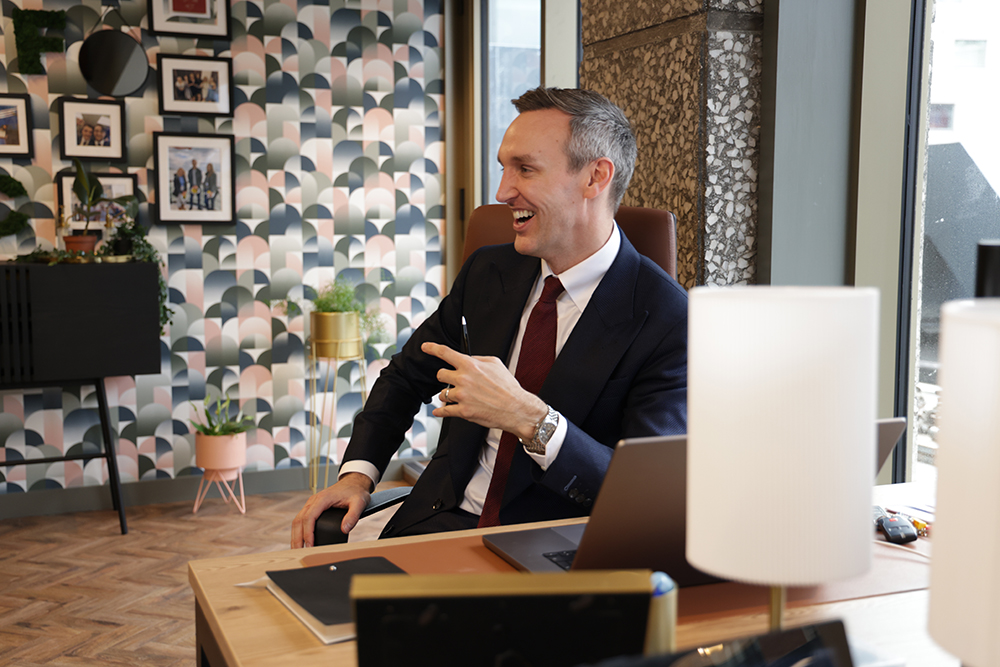
Robbie Blackhurst is the Founder and Director of Black Capital Group, the holding company that powers Advance Social Value, Compliance Chain, Procure Partnerships Framework and Strategic Resourcing. Robbie is a member of the Chartered Institute of Builders, is MCIPS certified and has an undergraduate degree in Aviation and Aerospace, a postgraduate degree in Construction Project Management, and a Master’s in Business (MBA).
